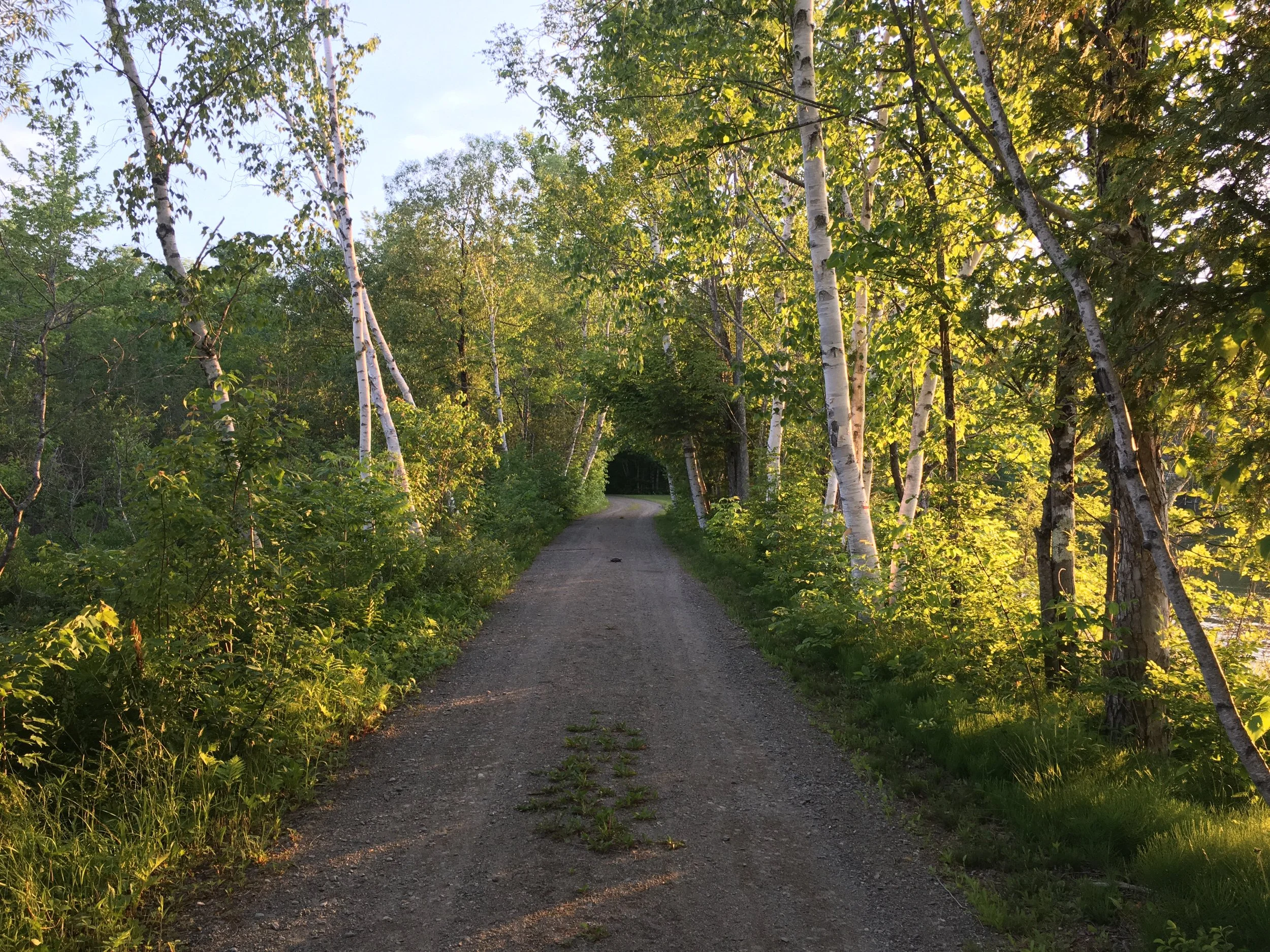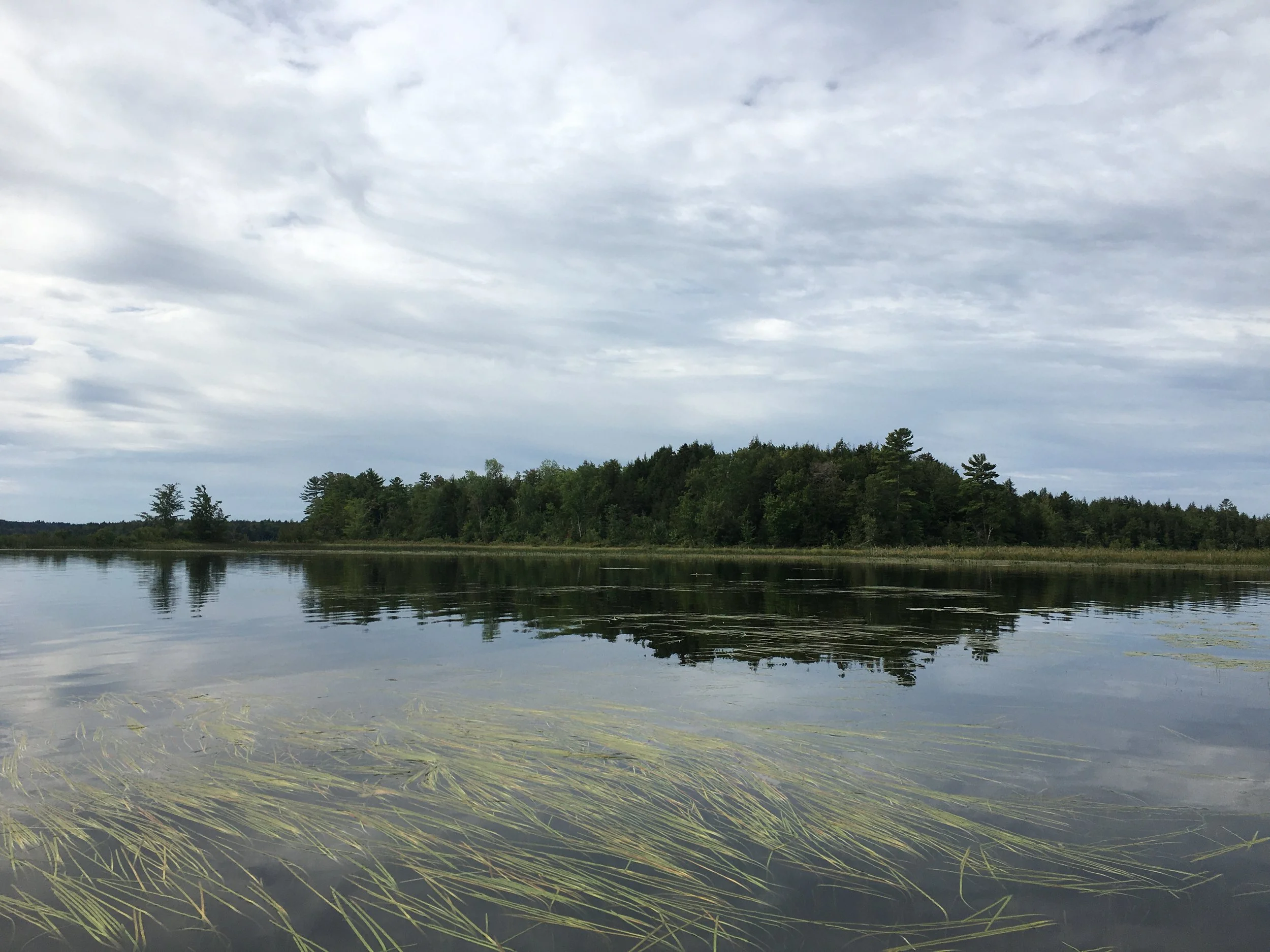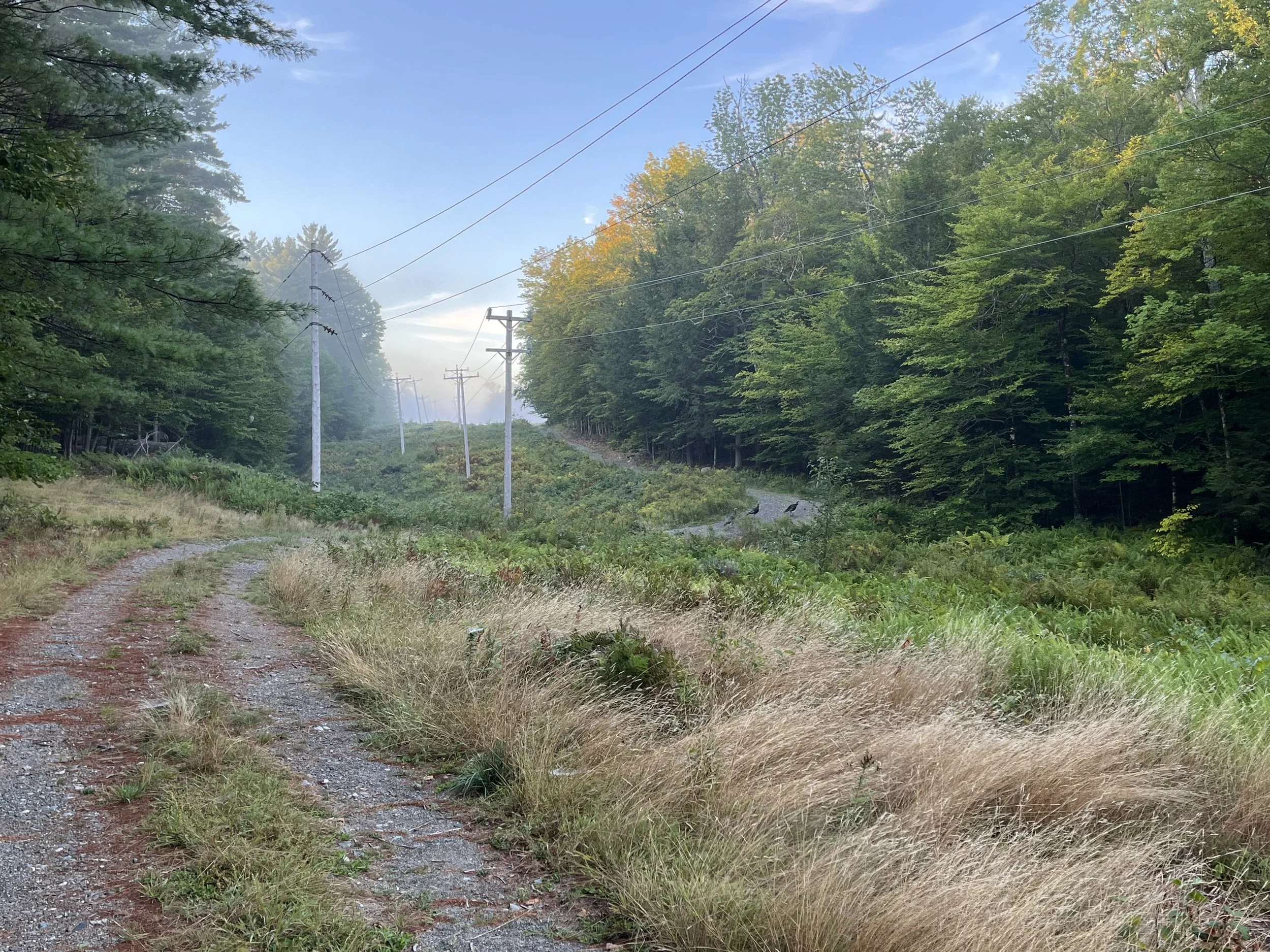Into Woods: Propositions for a Third Way
Natasha Marie Llorens probes Sarah Workneh on questions of commitment and duration in curatorial practice.
Natasha Marie Llorens: I have a vivid memory of you standing in a subway train in New York explaining to me how you got from studying social justice movements in graduate school to co-directing Skowhegan, which is one of the most influential and long-standing artist residencies in the US. Can you tell us a bit of that story? What kind of commitment led you to this role or led you away from working with social justice movements more directly?
Sarah Workneh: My parents are social workers, and I studied for a Masters’ degree in interdisciplinary studies. I was focusing on Social Movement Theory… so while a lot of my work and thinking and acting is framed through my own upbringing, I don’t actually have any degrees related to my work—which is part of what allows me to feel free to be inventive, dare I say, radical with my work. I studied Linguistics (and Russian) as an undergrad. The department I studied in and my teachers were heavy Chomskyians, meaning that studying language also meant studying power dynamics and “governance.” I also worked for the Physics Department, where I learned a lot about abstraction and experimentation. After that I worked in a Montessori school. All of these experiences contributed to a political vision of education. I started grad school around the same time that I started working at Ox-Bow School of Art and Artists’ Residency in Michigan, and I was specifically interested in educational spaces that existed outside of more traditional institutions—in the “hinterlands”, as they say. I was interested in traditions of lay education or peer-to-peer education specifically.
While I always had interest in art as a young person, I became more interested in my understanding that art, at least in theory, was like physics—it investigates things that don’t yet exist or things that are oppositional to pre-existing history. That understanding of art and its exploration felt like a radical way of thinking about all of the shitty things we have inherited, and of proposing the space for a rootless future filled with potential.
The puzzle and joy of working in a place like Skowhegan over the last 13 years has been moving that idea of art out of the theoretical and into the lived, the logistical, the aspirational, and into all of the inherent mess that comes with that kind of space. The gesture of offering a rootless or even answerless future space when we have all been trained, even in art, to be a little afraid of such rootlessness is inherently uncomfortable and opens us all up to mistake and hurt. But so long as we can do it responsibly and without damage, it feels really important to think about practicing the construction of a present and a future that isn’t tied to the past. Of course, not ignoring the past but just not having any future determination constantly telescope out or be so genetically tied to the fucked-up ways in which capitalism, competition, racism, deprivation have structured how we exist now. It’s really about imagination.
I think there are a lot of people in the world doing Social Justice work (including my parents, when they were still working). I don’t need to or want to conflate the luxurious yet difficult, meaningful, and transformative experience of running an art school with that work. Do I think so many people need access to a place like Skowhegan to support radical thinking and radical work? Do people need to be trusted and to experience generosity as a way of preparing to do difficult work? I certainly do. I also consider their work and mine political, and I certainly think about justice, access, anti-capitalist and anti-carceral modes and philosophies every day as I do my work, but I don’t need to call it Social Justice. I think the best way to describe the difference is the long-game versus the short-game, or even in terms of abstraction vs. a kind of realism. It is important to change the conditions surrounding what we all think is possible for the political future– that’s the long game. Many people who find themselves at Skowhegan have come from backgrounds (and present-days) where everyday structural oppressions, negligence, and withholding has had real and consequential effects on who we, as a society, are and how we are enabled to live and how we are enabled to imagine a different way of living. A lot of the work we embark on at Skowhegan THROUGHart is a proposition to think about what happens when confidence, access, generosity, care, openness is something that we, too, are entitled to experience. And while that work on campus is both short-term and long-term, it is not the same as work as working in the “justice” system or with detained undocumented people in camps, or labor organizing—the stakes are just different. Don’t get me wrong, both are 1000% needed to get anywhere, but I try to steer clear of using universal terms. Not everything is the same.
NML: Do you have a sense of the political role that Skowhegan as an institution plays in the arts eco-system, either in the US or internationally, or both? I am asking you as a thinker and curator rather than you as an institutional representative, but maybe this isn’t possible to parse. I am thinking here about the way the residency opens up a space for a different set of conversations about racism in the arts: sometimes a more painful conversation, sometimes a more complex one, sometimes a conversation that is so informal it's like a rumor, soft and impressive.
SW: We know Skowhegan is a platform that people look to when they are searching out emerging artists for a variety of opportunities. People read the book of Skowhegan. I have always considered it to be my job to change the pages, to rewrite the narrative of what kind of work is put into the world, who it is made by, what it looks like, what it talks about, and what it is proposing– which is not just a contribution to a fairly tight historical understanding of practice, it is an attempt at a restructuring of an understanding of past culture that we can move forward from., So, that work of who is coming into Skowhegan and contributing to that restructure, honestly on the surface shows up as diversity in race, gender, and class, and geography, but of course, it’s more than just appearances– it is different histories, different concerns, different ways of ascribing values (not in the monetary sense but in the ways of being a human) and disrupting a largely monolithic narrative of art and art history, or even just history.
I also like to think that through time at Skowhegan, the artists who are with us start to think about different modes of community formation and what we can ask of and from the art world. I think that being a black female identified person, who is interested in these bigger questions, also models a different kind of interaction with hierarchy, authority, and what one is “allowed” to ask for from institutions, from leadership—at the end of day, I use my role as a stand in for governance—and want people to understand that we can interact with governing bodies in ways that are different than we think or have experienced.
There is this incredible conversation on Millenials Are Killing Capitalism between Fred Moten & Hanif Abdurraqib where Fred says,
The history of slavery is a history of theft, but it is also a history of imposition….In addition to us stealing your labor, this is some shit you have to believe in. Not just some shit you have to believe in, but a way of believing…that what we are imposing on you is a modality of belief, a recognition or an understanding that thought implies a certain set of, the deployment of a certain set of conceptual tools and a belief in the reality of those concepts.
When I heard it the first time–I was like yes! Yes–this is the crux of the issue, THIS is what I’ve been trying to verbalize–beyond slavery–this whole notion of how we have been taught to be, relate, and what we are taught to WANT, what we are taught to see–all of it is an imposition set by colonial capitalism that feels not just immovable but also just THERE. It feels like that is what I want to work against and Skowhegan, because of many of the conditions (though not all) surrounding it, feels like a place to think about and enact that.
I was lucky—I had a lot of organizational precedent to build on at Skowhegan, and I have been allowed to PUSH that precedent. There were a lot of values outlined and in place when I arrived—frankly, those values are what allowed me to get hired—a commitment to diversity, to financial aid, to protecting the residency space in Maine from even our own board members, to care as the medium for education, and to dissolving boundaries through living and working laterally. I walked into an institution that had been practicing that for decades and that is important. Was the work complete? Certainly not. Did it need to get pushed or envisioned differently or go deeper? For sure, and it hasn’t been easy because the ideation of these values is very different from what is required to live them. But I, at least, had somewhere to start. In my job at Skowhegan, and at Ox-Bow, I have always considered it my job to understand what the founders were thinking when they took a step away from more traditional institutions when they began, and then update those values, push them, fuck with them a little bit for the moment where we find ourselves today.
For me that deeper NOW work comes when we are all on campus together and we model and practice a different kind of hierarchy, kindness, a different way of envisioning authority (and the dangers of assumed authorities in all of their forms). It comes as we actually THINK about what is actual EQUITY and question how we carry people safely in that space so that we can get as close as possible to a temporary equity, thus enabling the freedom necessary to do the difficult work of wanting and making something that doesn’t yet exist–without embodying “imposition” that Fred is talking about or at least trying not to embody it.
And a lot of that work is untraining the hundreds of years of structural oppressions in all its forms and what those forms of dominance have done to us to create a suspicious, hoarding, punitive, unseeing, defensive way of being. This is hard to undo, even for me, and as soon as you make progress in one area, you realize there’s more than you ever thought laying just beyond. Ultimately, creating this space and this possibility of freedom is political but it is also personal to me. At the end of the day, I see the crappy world I was given as a black, 1st generation, female identified grandchild of war and I think: it’s not just that I don’t want to pass that on, that doesn’t feel like enough to me. I need a constructive way of building something new, a third way, and that is the only work I want to do.
But that work is not just in ideas, right? It is profoundly pragmatic and that is where Skowhegan can serve as a model for other institutions– how do you use your resources to enable your values? How do you hire, who do you hire, what are the resources they need for support? What does it ACTUALLY mean to be need-blind—is that just a liberal code word to get people in the door; because being need-blind erases the fact that we don’t all enter that space from an even playing field and that “need” doesn’t just show up in dollars and cents. It is also about what is the role of an organization that is embedded in a larger community. What is our responsibility to our town, our neighbors? How do we use our power and platform to contribute beyond our own needs?
NML: One of my assumptions with this set of interviews is that duration matters in a curatorial practice, broadly defined. It matters how long you work on something, in a structure, with a given set of infrastructural conditions. Does your experience as the co-director of Skowhegan confirm this assumption? Do you feel that somethings have been possible to shift in a positive sense because of your long tenure?
SW: Totally. Whenever I am invited to do studio visits at a school or when I have been asked to lead a seminar or a class, I am always confused about how to deal with the time constraint. I am not used to “teaching” teaching or, even, having a conversation that doesn’t involve getting to know someone and their work over time. I am especially confused about how to speak or teach in a way that doesn’t just involve whatever ideas I am interested in or just bringing in off the street. When I was in grad school I wrote a paper on Liberation Theology called Slow Revolution, and I feel like that really sums up how I understand the timeline of working with people while living in the woods in Maine, where you can live six different lives in a single day and a week there is the equivalent of three weeks in the outside world. This time-work is how you get into cellular change, DEEP STRUCTURE. And certainly that happens to individuals while also allowing for change to happen institutionally.
I have stayed at Skowhegan as long as I have because there is deep truth in what I expressed earlier in this interview—that as soon as you make progress in one area, it becomes clear that change is iterative. Like you are focusing on one aspect of growth and as soon as you get that aspect where you want it to be, it reveals a completely different area of need that you couldn’t even see until you had moved through the first shift. And that just keeps happening, especially as it relates to equity work. What begins as an impulse to think about diversity grows into thinking about all the changes that are needed to not just invite diversity in all its forms, but to allow that diversity to thrive as an idea, in practice, and as individuals who are seen, cared for, and given license. At Skowhegan, that work includes thinking about buildings, thinking about food, thinking about travel, materials, and having staff and faculty around that can speak to each of us. That work includes a therapist, that work includes enacting forgiveness, that work includes promoting a space where each individual is supported in recognizing that our impulse to categorize things as right or wrong has limited our own mobility as humans. It also includes thinking about our town, our environment, our understandings of boundaries/territories/states, and structural lack. I mean, I could probably stay at Skowhegan for another 100 years and never be done, but by the time I leave this job, I know I will leave the organization set up in a way where this work is enabled to continue, and has a mandate that can grow.
Sarah’s favourite (elm) tree at Skowhegan
On campus at Skowhegan
On campus at Skowhegan
On campus at Skowhegan
On campus at Skowhegan







